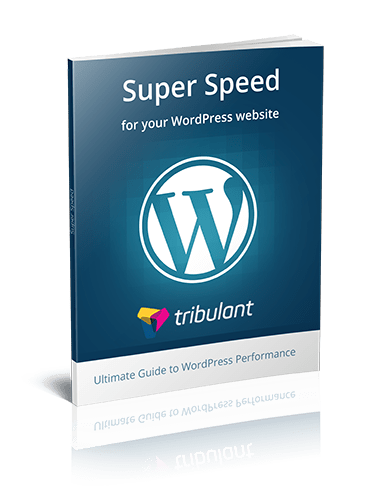
10 Tips on How to Get Your WordPress Website Indexed by Google

Did you know that the best place to hide a dead body is page two of Google search results because nobody would look for it there?
This innocent joke reflects the importance of page one of Google search results, so naturally, every website owner wishes to find himself in the first position.
However, before getting there, you need to get onto Google at all. In other words, your site needs to get indexed by Google.
The good news is that there are some actions you can take and help Google notice your site. But first, it’s important to understand some search engine basics.
How does Google indexing work?
Google uses search spiders, automated programs to search the Internet and report website content to search engines. This process of exploring a site and its content is named crawling. Practically, that way Google finds out what your site is about. Once crawling is completed, if search spiders estimate that your website is worthy, it will be registered to the Google index.
Now when you know how Google indexing works, it’s time to see what you can do about it.
1. Invest in an excellent host provider
For starters, it’s crucial to choose the right hosting provider because the hardware your website runs on can be the first obstacle to getting indexed by Google. When search spiders notice slow server speed and disconnects, they instantly end their crawling. Given that in hosting you get what you pay for, make sure you invest in a quality host with excellent hardware.
2. Submit your Sitemap to Google Search Console
If you haven’t submitted your Sitemap to Google Search Console (formerly Webmaster Tools), you may not get some valuable insights into your site’s presence in Google Search results. This is the place where you can see what keywords drive traffic to your website and other links to your site. Besides, this is also the place where you can see if any penalties are leveraged against your website.
3. Install Yoast SEO Plugin
A great thing about WordPress platform is that it has SEO plugins that once you install them they can do all the heavy lifting when it comes to Google indexing. One such plugin is definitely Yoast SEO. It allows you to generate XML sitemaps automatically, enhance your content with a page and keyword analysis, add social and schema markup, enable breadcrumbs, and many other optimizations.
4. Sign up to Google Analytics
Not only does Google Analytics provide you with useful information about the performance of your site, but it also helps you with Google indexing. When you sign up to Google Analytics, you give Google a signal that your website exists and that they should pay attention to it which they most certainly will. Setting up and using Google Analytics isn’t rocket science and you can learn it by watching tutorials.
5. Switch your website to HTTPS
HTTPS is the secure version of the HTTP protocol that has become an official SEO ranking factor. That way, all sensitive information the visitors leave on your site are safe and protected. Therefore, if you haven’t switch your site to HTTPS, Google might show a “not secure” warning to your visitors. If you aren’t sure how to perform this transition, contact your web host and they will give you a hand.
6. Create a blog and publish regularly
According to recent statistics, websites with blogs have 434% more indexed pages. Apart from getting indexed faster, having a blog helps you build site authority. However, have in mind that you need to offer your readers high-quality content on your blog and publish regularly. If you don’t have the time for this or you’re not good with words, there are platforms such as australia writings, besttermpaper, and uk assignment writing that can help you out.
7. The right content length
The right content length is still a matter of dispute among many SEO experts. According to various studies, long-form content (over 1,000 words) ranks better and gets more shares. However, there are also some examples of short content that performs well and ranks near the top of the SERPs. Therefore, instead of pleasing the Google gods, focus on your readers and provide content that will give them some value.
8. Use your keywords in title and header tags
Keyword stuffing is long gone practice. Today a well-optimized post involves various words and phrases that cover the principal topic of your content. Still, you will have some main keywords you want to focus on. So, to gain greater exposure and rank better, use these words or phrases in your title and header tags. Moreover, use them as close to the beginning of your title as possible.
9. Get quality backlinks to your website
Not only are the external links a pathway to your site, but they are also a factor that helps Google estimate the quality of your website. The more high authority, influential sites link back to your pages, Google gets the signal that you are a reliable source with relevant quality content and as a result, your website will be more valuable in Google’s eyes. Therefore, get down to business and get quality backlinks.
10. Distribute your content
Last but not least, share your content on social media and across publishing platforms. For instance, Medium is an excellent place to republish your post, especially because it uses the rel=canonical tag, so you won’t have problems with duplicated content. Also, you can use the LinkedIn Pulse to drive traffic to your website by publishing only an excerpt from your post and linking to the full version on your page.
To conclude
Applying these tips will definitely lay a solid groundwork for appearing among the first results in Google search. Have in mind that for some strategies it takes time and effort, but they will pay off in the long run.
Becky Holton is a journalist and a blogger at Bestessay.com. She is interested in education technologies and is always ready to support informative speaking at Australianwritings.com. Follow her on Twitter.
Earn Money by Referring People
Refer customers to us with your affiliate link and earn commission on sales from your link.




No comments yet